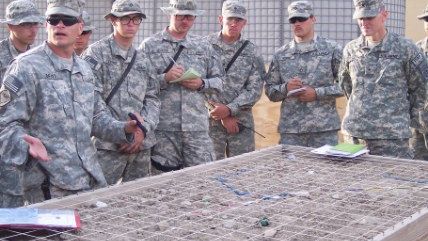In Afghanistan, a 15-Year Failure
Endemic corruption has prevented any sort of victory.


There is a perverse symmetry on display in Afghanistan right now. Fifteen years ago, American warplanes bombed targets there, beginning an offensive against the Taliban government and al-Qaida precipitated by the 9/11 attacks. This week, they were in action once again.
There was, of course, a big difference in the two operations. In 2001, our forces were opening a campaign that would end quickly in victory. Today, they are part of a war that has no victory, or conclusion, in sight.
The original triumph came quickly. By the end of 2001, the Taliban had surrendered in the capital; a new, pro-American government was in place; and Osama bin Laden was running for his life.
It was a thrilling turn of events. President George W. Bush said of our enemies, "They saw liberty and thought they saw weakness, and now they see defeat." British Prime Minister Tony Blair proclaimed "a total vindication of the strategy that we have worked out from the beginning." Things went so well that the Bush administration felt free to start planning another war, in Iraq.
It's hard to believe now, but at the time, we appeared to know what we were doing in Afghanistan. It was an illusion, magnified by faith in our unparalleled military might and righteous mission.
Our confidence led us into a fatal error. We committed ourselves to remaking Afghanistan, but not wholeheartedly. Given a choice between a massive commitment of military and civilian resources to serious nation building on one hand and leaving as soon as the enemy was vanquished, we did neither.
Instead, we chose a middle course, a limited commitment, which averted the worst outcome but offered no way out. We remain wedded to that option for the indefinite future.
Despite sacrificing more than 2,300 lives and some $800 billion, we no longer expect anything but bleak reports from Afghanistan. Even the rare item of good news is bad. On Tuesday, for example, the government said it had reclaimed central Kunduz from Taliban units and was fighting to drive them out of other neighborhoods.
What's bad about that? Until last year, the city hadn't fallen to the Taliban since 2001. Then, they seized it and held it for two weeks. Their latest assault on the city—even if it can be reversed—indicates that security is still up for grabs.
All this fighting comes at the end of a bloody summer, in which Afghan forces took record casualties from a resilient foe. Only two-thirds of the country is under government control.
Unemployment is estimated at 40 percent. Millions of desperate Afghans have given up and fled, turning up as refugees in Pakistan, Iran or Europe. This week, the Kabul government, a perpetual charity case, sent representatives to ask for $3 billion in aid from donor nations at a conference in Brussels.
Any money is likely to be wasted. The watchdog group Transparency International rates Afghanistan one of the most corrupt nations on the planet. A unity government that is anything but unified has proved unable to act decisively on any of the grave problems afflicting the country.
No one dreamed in 2001 that in 2016, the United States would still be mired in Afghanistan. But some 9,800 American troops remain, along with another 5,000 troops from allied countries. Barack Obama, the anti-war candidate of 2008, can't bring himself to leave.
A report last month by the U.S. special inspector general for Afghanistan reconstruction amounted to a chronicle of folly. It found that pervasive corruption has stymied our efforts, helped the enemy and sapped public support for the government. It quoted an Afghan official who in 2010 argued that "corruption is not just a problem for the system of governance in Afghanistan; it is the system of governance."
Ryan Crocker, a former ambassador to Kabul, told the investigators that "the ultimate point of failure for our efforts … wasn't an insurgency. It was the weight of endemic corruption." The people in the regime we were helping were the true enemy.
Looking back, it's clear the U.S. took on a project far beyond its capabilities. Arriving in a backward, war-torn country where we didn't speak the language, know the history, share the religion or understand the culture, we assumed that Marines, money and good intentions would produce a happy outcome.
So far, that approach hasn't worked. What makes us think it ever will?
© Copyright 2016 by Creators Syndicate Inc.


Show Comments (42)